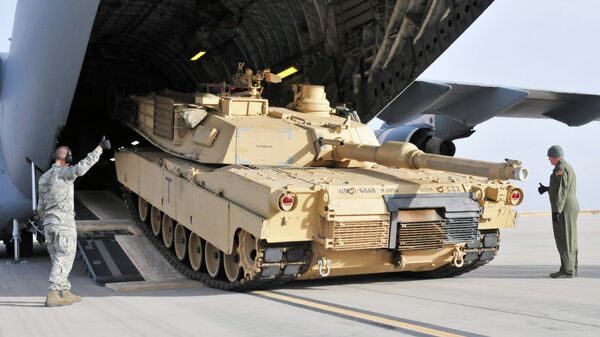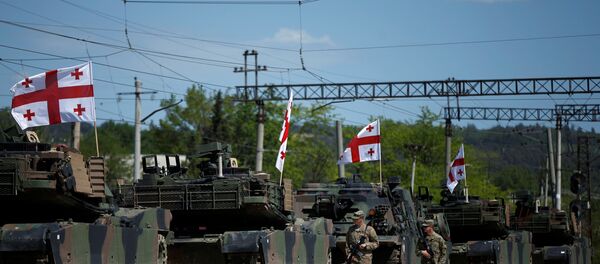The new vehicle must be agile and lightweight to travel with troops through narrow streets, up mountains, in dense jungle and other terrain too difficult for the behemoth M1 Abrams tank. This is the Army’s fourth attempt in 20 years to acquire such a vehicle, as the unique qualifications have proven difficult for defense developers to implement successfully.
Fort Benning commander Major General Eric Wesley said, referring to Russia and China, "Our near-peers have sought to catch up with us."
Moscow and Beijing, like Iran, have bought hardware and are currently developing what’s being termed Anti-Access and Area Denial (A2/AD) defenses. A2/AD defenses are layered systems of missiles and sensors put in place to deploy mines, roadside bombs and anti-tank weapons to stop enemy troops on the ground (area denial) and to keep ships and planes at bay (anti-access).
Army helicopters and Air Force transport are not ideal for dropping light infantry units in areas that may have heavy anti-aircraft defense, as they would not able to get close enough for effective attack. In this kind of conflict, troops would use cross country trucks, traveling long distances to their mission, after landing outside of missile range. This is where a parallel program to the MPF, the Ground Mobility Vehicle (GMV) comes into play.
GMVs, also lightweight, are not armored and cannot take much punishment, making it necessary to scout areas beforehand. The original plan was for a specially-built Light Reconnaissance Vehicle (LRV), but it soon developed into a variant of the Joint Light Tactical Vehicle (JLTV). Once enemies are scouted, however, air support would not be able to get past A2/AD systems, necessitating a company of 14 MPF vehicles per Army brigade, so they can have their own big guns.
The MPF is intended to handle opposition that may otherwise bog down light infantry. Wesley said, "What we wouldn’t expect is that an infantry brigade is going to fight an entire brigade of armored vehicles." He explained that older tanks and bunkers can be an issue for ground troops trying to complete their objective.
Colonel Will Nuckols, Fort Benning’s director of mounted vehicle requirements, remarked, "What we don’t want is an Abrams; we already have an Abrams. (The MPF) is going to be lighter, more strategically mobile, and more tactically mobile than the Abrams, with similar firepower and protection that is suitable to the formation it is supporting."
"This is something we want to get fielded no later than the early ’20s," Wesley said. "We’ve told industry we want to move as quickly as possible. It really depends on what they come back to us with that defines the maturity of their technology."





